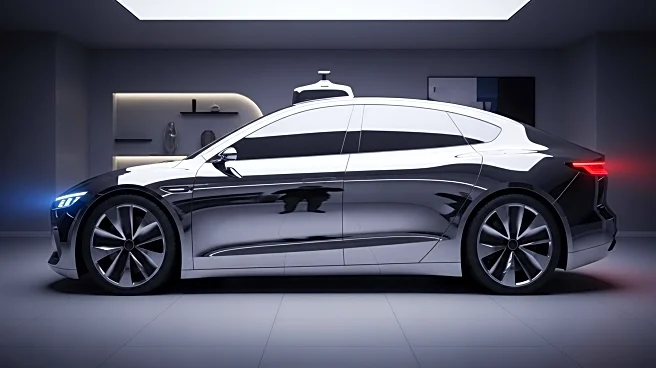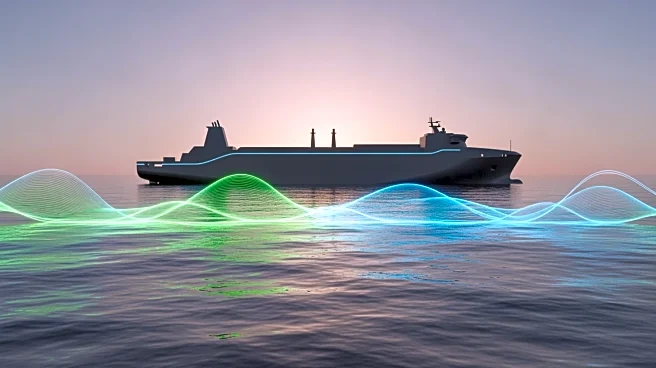What's Happening?
A recent study from the Electric Vehicle Intelligence Report highlights a significant consumer backlash against Tesla's Full Self-Driving (FSD) technology. The report reveals that nearly half of potential Tesla buyers believe FSD technology should be illegal, and a two-to-one margin of consumers say the feature makes them less likely to purchase a Tesla vehicle. This sentiment poses a challenge to Tesla's sales recovery efforts, as the company has already experienced a decline in sales in the European Union, China, and the United States. The perception of Tesla's brand has also deteriorated, with a net negative view increasing from -7 in April to -15 in August. Despite Tesla's belief that FSD is a key selling point, the technology has faced criticism due to several accidents involving Tesla vehicles in FSD mode, leading to lawsuits.
Why It's Important?
The negative consumer sentiment towards Tesla's self-driving technology could have significant implications for the company's market position and future sales. As Tesla relies heavily on its innovative features to attract buyers, the backlash against FSD may hinder its ability to compete effectively in the growing electric vehicle market. This development is particularly concerning as Tesla faces increased competition from other automakers, such as BYD, which has seen a rise in sales in Europe. The decline in consumer confidence may also impact Tesla's stock performance and investor relations, as the company navigates these challenges in key markets.
What's Next?
Tesla may need to reassess its marketing strategy and address consumer concerns regarding the safety and legality of its self-driving technology. The company could consider enhancing its FSD features to improve safety and reliability, potentially regaining consumer trust. Additionally, Tesla might explore alternative strategies to boost sales, such as offering incentives or focusing on other aspects of its vehicles that appeal to consumers. Stakeholders, including investors and industry analysts, will likely monitor Tesla's response to this consumer backlash and its impact on the company's financial performance.
Beyond the Headlines
The controversy surrounding Tesla's self-driving technology raises broader ethical and legal questions about the future of autonomous vehicles. As the industry continues to evolve, regulators may need to establish clearer guidelines and safety standards for self-driving technology to protect consumers and ensure public safety. This situation also highlights the importance of consumer perception in shaping the success of technological innovations, emphasizing the need for companies to prioritize transparency and accountability in their product offerings.









